
- Mode2 Portable AC Charger
- Mode3 Ev Charging Cable
- Home AC Charger
- Commercial AC Charger
- Home DC Fast Charging Station
- Commercial DC Fast Charging Stat
- V2X Charger
- EV Charging Station Power Module
- Ev Charging Plugs
- Ev Charging Socket
- EV Charging Accessories
- On Borad Charger
Latest news
- Nissan Unveils Bidirectional Onboard C
- Milence Launches First Charging Hub in
- Norway Likely Delaying Electric Van De
- India Unveils Five-Year Plan to Introd
- Hyundai Collaborates with Canadian Bat
- LG Energy Solution to Provide Batterie
Contact us
- ADD: 4-9-4 Jinkai International No. 1230 Jinkai RD, North of Chongqing China, 401122
- TEL: 0086-23-63425659
- FAX: 0086-23-63013491
- E-mail: bake@senkumachinery.com
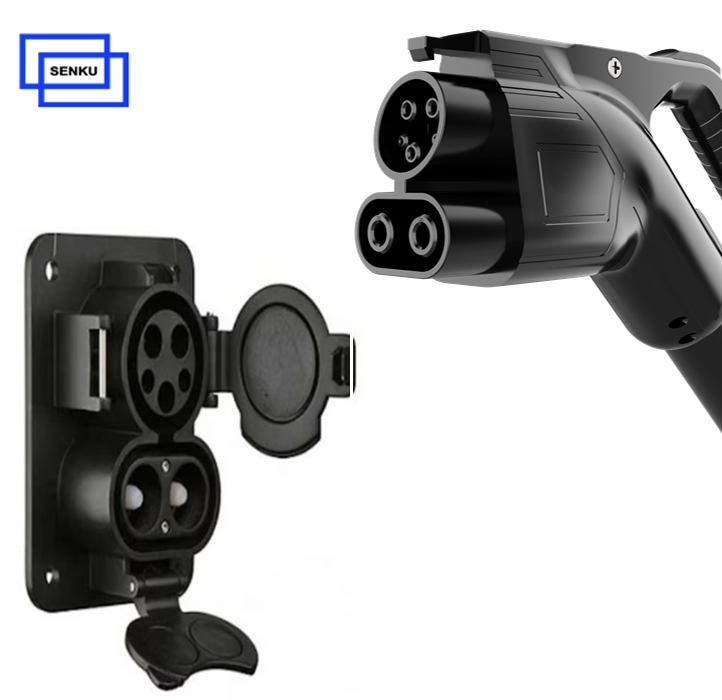


350A car charging socket ccs type 1
- Rated: 80A 150A 200A 250A 300A 350A optional
- Certificate: UL
- IP Level: TYPE 3R
- Mechanical lifespan: Plug and unplug ≥10000 times
- Product description: This dual-functionality 350A car charging socket ccs type 1 offers significant flexibility for EV users. It supports both slower Level 1 and Level 2 AC charging, ideal for home use or situations where
Product introduction
High power Charging UL J1772 350A car charging socket ccs type 1
The Combined Charging System (CCS) is an evolution of the J1772 (Type 1) interface, which builds upon its five-pin design by incorporating two additional pins specifically for DC fast charging. This results in a seven-pin configuration: three pins dedicated to AC charging (similar to the original J1772) and two larger pins designed to handle the higher power requirements of DC fast charging.
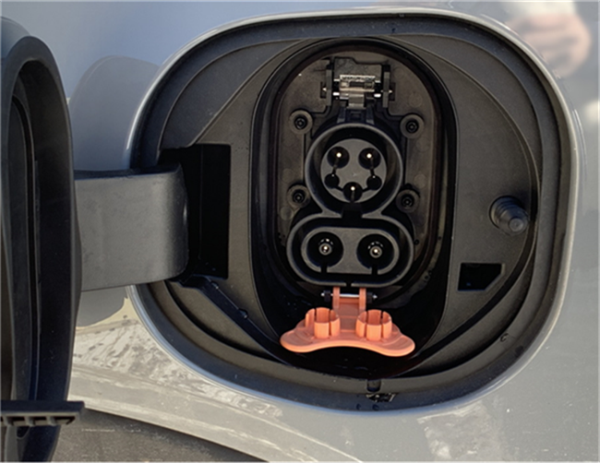
This dual-functionality 350A car charging socket ccs type 1 offers significant flexibility for EV users. It supports both slower Level 1 and Level 2 AC charging, ideal for home use or situations where charging time is not a constraint. However, when a quicker charge is needed, such as during travel, the CCS interface can switch to DC fast charging (Level 3), bypassing the vehicle’s onboard charger and delivering high current directly to the battery, drastically reducing charging time.
Electric Performance.
Rated current
60A AC and 350A DC
Operate voltage
110V / 240V AC and 1000V DC
Insulation resistance
>2000MΩ (DC1000V)
Terminal temperature rise.
<50K
Mechanical life
no-load plug in / plug out > 10000 times
Materia
Thermoplastic, Flame retardant grade UL94-0;
Pin: Cooper alloy,sliver + thermoplastic on the top
Operation Temp.
-30℃ ~ + 50℃
IP protection class
TYPE 3R
Standard
UL2251 / SEA J1772
Certifications
UL / TUV
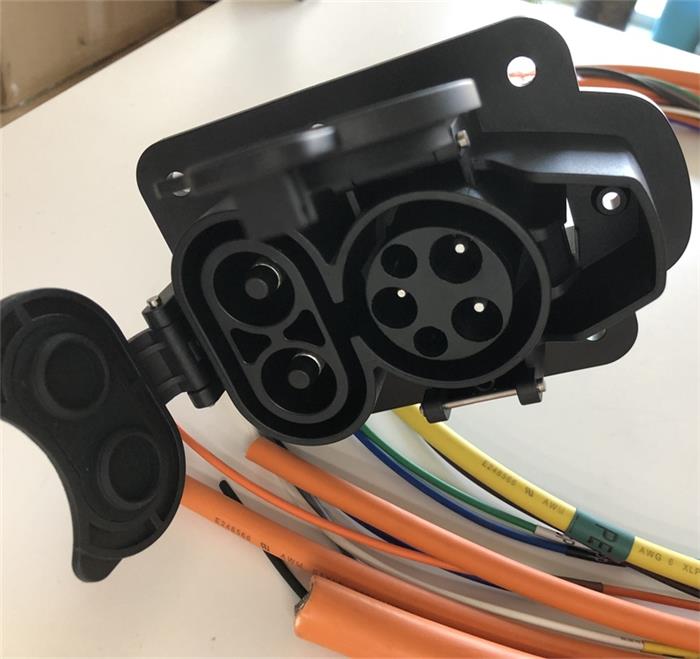
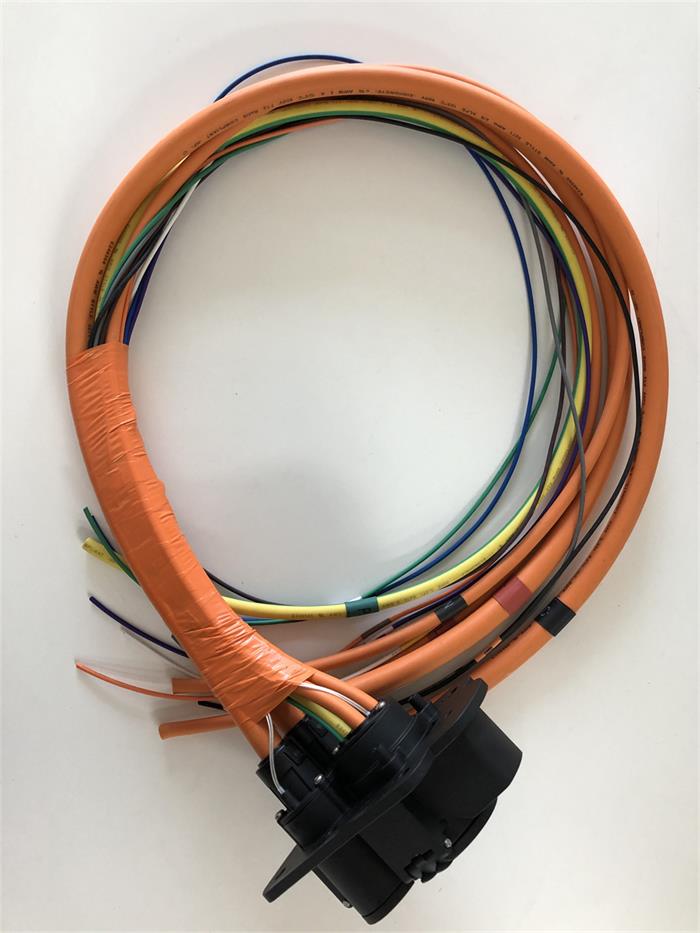
Comparing J1772 Type 1 and CCS
The primary difference between J1772 and CCS lies in the range of charging speeds they support. J1772 (Type 1) is limited to Level 1 and Level 2 AC charging, making it suitable for home and public charging stations but not for DC fast charging, which is essential for long-distance travel.
In contrast, CCS encompasses the full spectrum of charging speeds, from Level 1 and Level 2 AC charging to Level 3 DC fast charging. This versatility allows vehicles equipped with CCS to recharge rapidly at fast charging stations while retaining the ability to charge more slowly when necessary.
Design Differences
Another key distinction is the physical design of the connectors. The J1772 connector is a single car charging socket designed solely for Level 1 and Level 2 AC charging, offering broad compatibility with most AC charging stations.
Conversely, the CCS car charging socket is an extended version of the J1772, featuring the standard AC charging pins at the top and adding two large pins at the bottom for DC fast charging. This hybrid design enhances its utility, accommodating both everyday and high-speed charging needs.
Implications for EV Users
While these differences may appear technical, they have a significant impact on the user experience, particularly regarding where and how EVs can be charged. Both J1772 and CCS are essential to expanding EV charging infrastructure and encouraging wider EV adoption.
Prospective EV buyers should understand these distinctions to make informed choices about their charging requirements and compatibility needs, ensuring they select the best option based on their driving habits and preferences.
Hot tags: #car charging socket ccs type 1 #manufacturers #factories

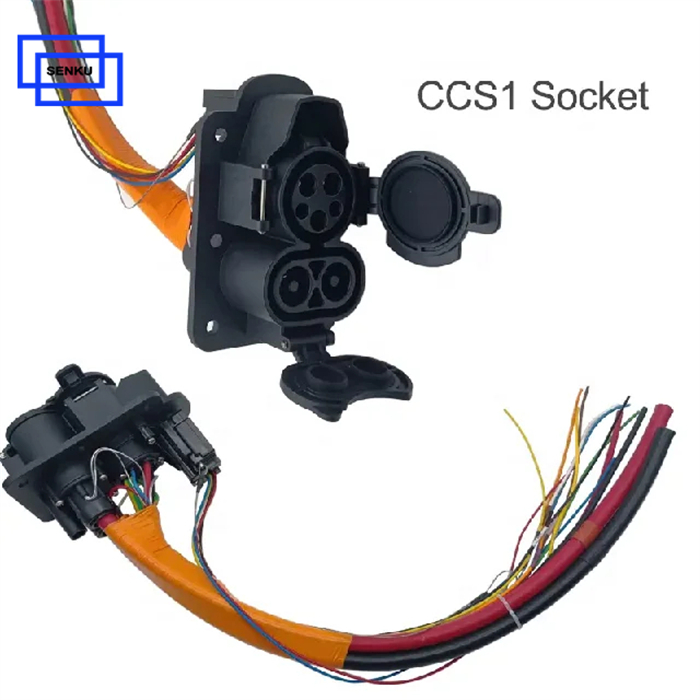



 Senku ,Bake
Senku ,Bake Senku
Senku